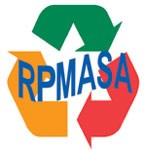
Top stories


Marketing & MediaAds are coming to AI. Does that really have to be such a bad thing?
Ilayaraja Subramanian 5 hours




More news

















Understanding legislation
South Africa's legislation for the packaging and transportation of hazardous materials is a complex and difficult one for a lot of industry players to understand and yet failure to comply may result in heavy fines or penalties being levied on guilty parties.
The repercussions of products being incorrectly packaged or transported could effectively be far worst as chemical spills or gas explosions have the ability to cause costly and devastating damage to the environment as well as threaten the lives of many human beings.
Similarly, hazardous goods containers that are not correctly disposed of after use can have a smaller reaching but just as deadly impact; countless people in the lower income brackets lose their lives or become seriously ill each year from drinking water that was transported in chemical containers that were unlawfully disposed of.
Consequently, it is very important for organisations in the manufacturing, packaging and transportation industries that deal with dangerous goods, to understand the levity or the responsibility that they are carrying and to make sure that they are well informed on the latest regulations regarding their role in handling these goods.
In order to address and highlight these issues and to facilitate a better understanding of the regulations pertaining to the industry, RPMASA, as the only industry representative from Africa on the UN Committees of Experts for Transport of dangerous goods and the GHS, undertook to host a biennial conference that would bring all the key role players together, along with a panel of international experts on the subject matter and offer them a forum to learn, discuss and share insights and ideas.
A challenge in holding a conference that involves such a wide audience is that the involved industries (manufacturing, packaging and transportation) perform very different functions and the regulations controlling one industry don't necessarily apply to the other which makes it difficult for them to find common ground.
As such there was a marked lassitude from many organisations in attending the conference despite the critical nature of the subject matter. Those that did attend, however, found great value in the information that was imparted.
Tseitsie Mokhele, CEO of SAMSA, welcomed the participation of stakeholders from the maritime industry but encouraged those not present at the conference to start a dialogue about the transportation of goods, so that the environment and lives could be protected.
"There much room for discussion on how disasters could be averted, how companies could place more attention on safety and avoid risks to the environment," Mokhele said.
"Enforcement of legislation protecting the environment and violation in the movement of hazardous cargo needed to be strengthened. The use of containers, multi modal transport - by sea as well as land - contributes greatly to the overall GDP of the South African economy. This export is an integral element in the development of our economy. With the maritime industry contributing significantly to South Africa and the region's economic growth, we should develop a broader and much wiser approach on how we should work to enhance the development of this sector."
The key outcomes of the conference were distilled into six resolutions by the parties involved, namely to:
Awards to reward plastic drum recycling
To address the issues of contaminated plastic drums being used to transport drinking water in rural areas and that of drums being discarded rather than recycled, RPMASA has introduced a set of awards to encourage the reconditioning and re-use of drums used in the chemicals industry.
Two awards will be presented in the 2013 conference. These will go to the best drum reconditioner as well as to the most improved drum reconditioner. It is hoped that these awards will awaken the conscience of the industry to the fact that its drums are re-useable and that by reconditioning them or properly cleaning them, it could avoid these drums falling into the wrong hands where they could potentially cost the lives of many unsuspecting people. Currently less than 10% of plastic drums are being reclaimed for re-use.